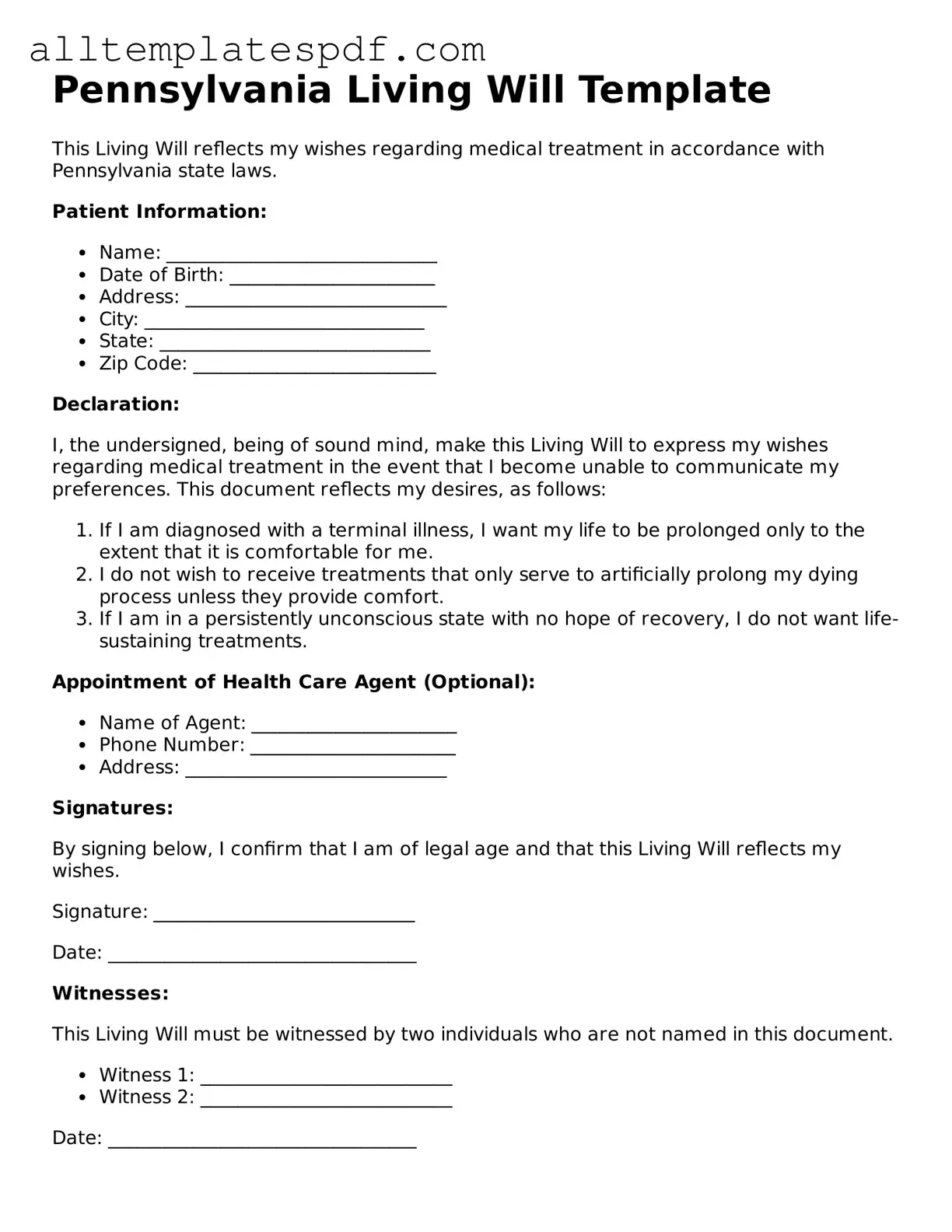Filling out a Pennsylvania Living Will form can be a crucial step in ensuring that your healthcare wishes are respected. However, many people make common mistakes that can lead to confusion or complications later on. One frequent error is not being specific enough about medical treatments. It's important to clearly outline what types of life-sustaining treatments you do or do not want. Vague language can leave room for interpretation, which might not align with your actual wishes.
Another mistake is failing to sign the document properly. In Pennsylvania, your Living Will must be signed by you and dated. If you neglect to do this, the document may not be considered valid. Additionally, not having witnesses present during the signing can also invalidate the form. Pennsylvania law requires that you have two witnesses who are at least 18 years old and not related to you.
People often overlook the importance of updating their Living Will. As circumstances change, so might your healthcare preferences. Regularly reviewing and revising the document ensures that it reflects your current wishes. Neglecting this can lead to a situation where the document no longer represents your desires.
Some individuals mistakenly believe that a Living Will is the same as a Durable Power of Attorney for healthcare. While both documents are essential, they serve different purposes. A Living Will outlines your wishes regarding medical treatments, whereas a Durable Power of Attorney designates someone to make healthcare decisions on your behalf if you are unable to do so. Confusing these documents can lead to significant issues when decisions need to be made.
Another common error is not discussing your Living Will with your family or healthcare proxy. It’s vital to communicate your wishes to those who may be involved in your care. Without this conversation, your loved ones may not understand your preferences, leading to potential conflicts during critical moments.
People also sometimes forget to include any specific religious or cultural beliefs that might influence their medical care. If you have particular beliefs that should be considered in your treatment, make sure to state these clearly in the Living Will. Omitting this information can lead to decisions that do not align with your values.
Finally, some individuals make the mistake of assuming that once the Living Will is completed, no further action is needed. It’s crucial to store the document in a safe yet accessible place and inform your healthcare providers about its existence. Providing copies to your doctors and loved ones ensures that your wishes can be honored when the time comes.

